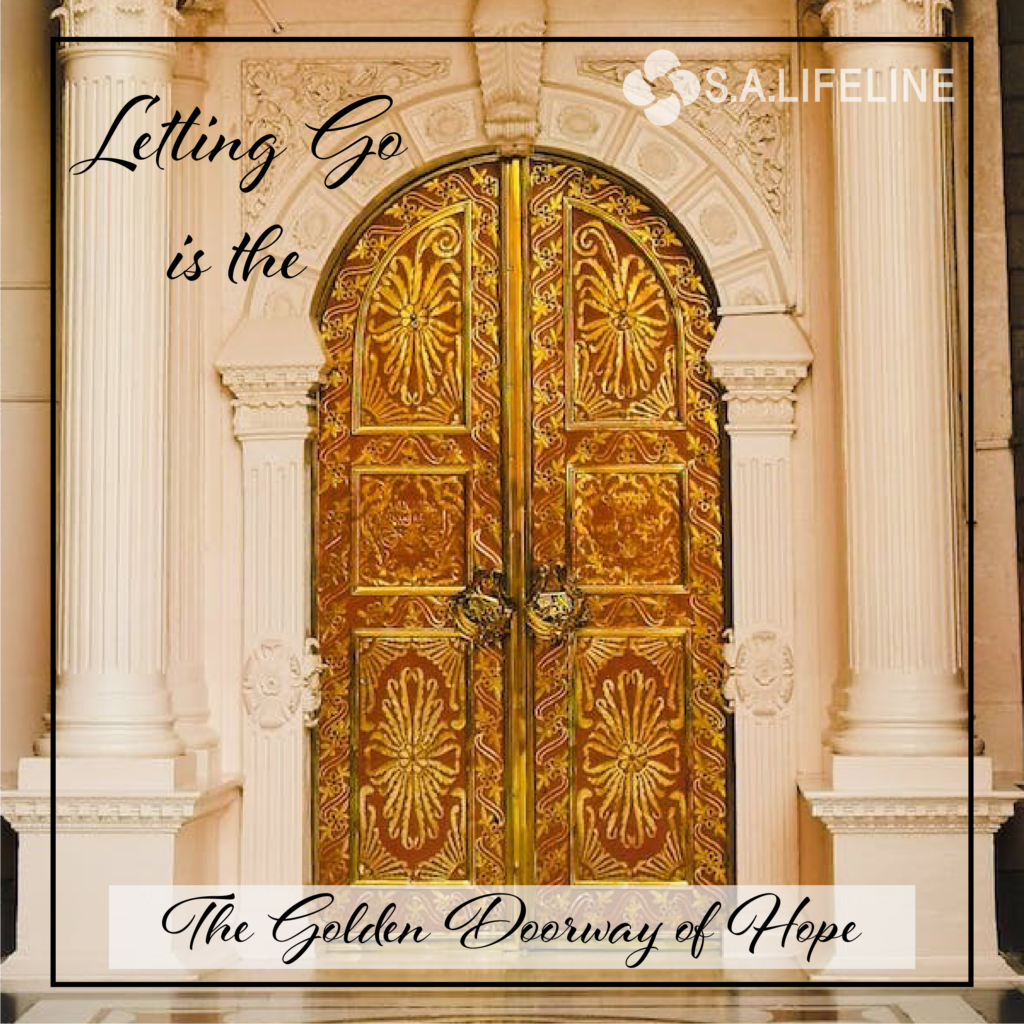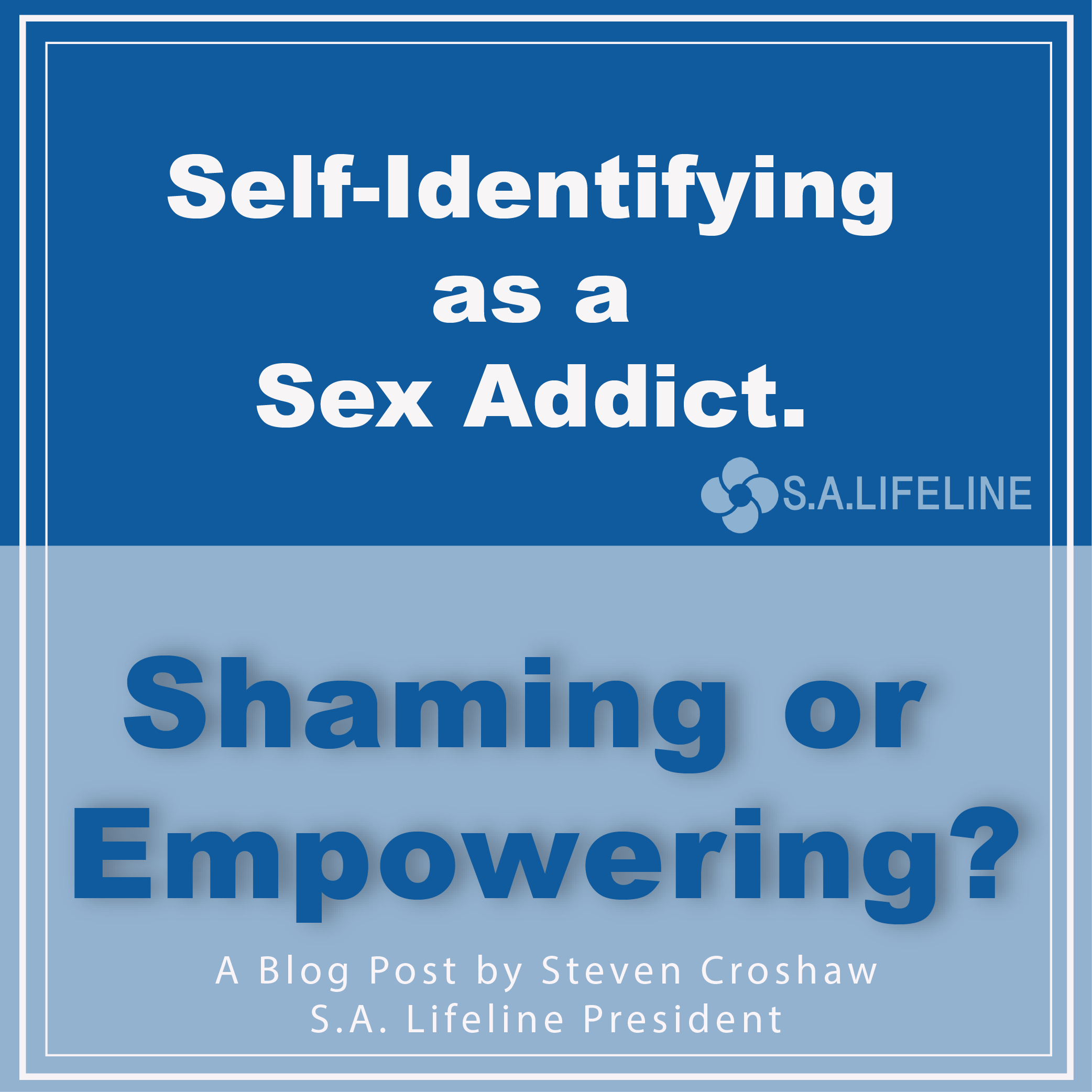By Steven Croshaw, President
SA Lifeline Foundation: Recovering Individuals, Healing Families
I tried to stop using pornography and sex with self hundreds of times, only to return to these unwanted behaviors again and again. For decades, feeling toxic shame and incredible fear I chose to hide my sexual acting-out behavior. I really wanted to stop and I really tried to stop but feared the consequences of being honest. I thought, If anyone really knew me, they would not love me. I certainly didn’t love myself.
I had “used” pornography on and off for most of my life, starting innocently in 1958 at the age of six. I stopped using pornography and other illicit sexual behavior nearly 18 years ago on August 25, 2005, and counting today, I have remained completely sober.
A Brief History
Let me now backup and briefly explain the arc of my life and unpack some important details of my story.
For most of my adult life, I considered using pornography and sex with self (masturbation) as “unwanted sexual behavior!’ I would often think to myself, I know viewing pornography is wrong, and I know God knows that I know using pornography is wrong, and in spite of being a believer I am choosing to “use” anyway. Often, I felt I was acting against my own will. To compound the problem I was living a double life. I acted out in secret, telling no one. It seemed at that time that fear and shame were driving my illicit sexual behaviors.
Here I was married to a wonderful and devoted woman and we had beautiful children. I served in my church and was a successful businessman. On the outside I appeared to be a successful, honorable man. On the inside, however, I felt very unworthy and disconnected from my wife, my children, my peers, and from God. The fleeting moments of pleasure I experienced using pornography and other illicit sexual behavior were destroying vital connections to God and those I loved-but I continued anyway. I was usually tired, on edge, judgmental, and quick to anger. I often found myself lying to “cover my tracks.” In short, I was miserable. I was losing my life and watching all that was of value to me slip away.
I Tried To Stop
Over the 32 years of my marriage, I made four distinct attempts at stopping my illicit sexual behavior. At the age of 20 just prior to marrying, I confessed to my behaviors to my bishop one more time, but did not tell my fiancee anything about them. I was convinced I had permanently stopped, and besides, I was sure that marriage would allow me to morally fulfill my sexual desires. About four months later, however, I started using pornography again and chose to hide it. I was full of pride and confident I could stop on my own. I felt I gave it an honest and serious effort, but the behavior did not stop.
At age 36 I focused again on stopping and was free from acting-out behavior for three years. But it didn’t last. At age 46 and through great effort I was free from such behavior for another three years. But it didn’t last. Finally at age 53, on Thursday, August 25th, 2005, I was arrested for picking up a prostitute. I had hit “rock bottom.” My life was in total shambles. I had hurt those whom I loved most just too many times. I had failed myself and them miserably. I was convinced there was no coming back from all my failures and that my life was lost-along with everything important to me.
Why Did I Choose To Go Back To Sexual Addiction?
Why in the world would I choose to go back to using pornography and illicit sexual behavior when I knew it was wrong, and that it brought very serious mental, physical, and spiritual consequences?
Let me reason with you as we consider these big questions. Was my inability to stop-and stay stopped-from the pursuit of using pornography driven by shame, or fear, or the euphoric pursuit of lust? After all, I believed using pornography was wrong! So why did I choose to go back to using after months or even years of being free from the acting-out behavior? Why did I choose to lie about and hide my behavior? Since my illicit sexual behavior was unwanted and I was acting against my own will, why could I not simply exert my willpower and just stop-once and for all?
Some might suggest the answer to these key questions were simply that I had a lack of self-discipline and was morally bankrupt. It is instructive to understand that lack of discipline and moral bankruptcy were explanations given for alcoholism over 100 years ago. Researchers have since proven that alcoholism is an acquired disease, an addiction that affects us physically as well as emotionally and spiritually.
Others suggest shame is the main reason I didn’t come out of hiding. My experience is that shame certainly kept me isolated. Shame contributed to feelings of negative self-worth and a fear of being judged, eroding vital relationships with my wife, family, and friends. Shame influenced me to lie about using pornography. But was shame the primary driver for using pornography? No!
The primary driver for using pornography was the euphoric physical and emotional experience it generated. In essence, it was the pursuit of lust. This provided an escape from the rigors and challenges of life. That temporary escape was enhanced when viewing pornography was combined with sex with self. And a key trait of lust is that it can never be satisfied.
Pornography Leads To an Addiction of the Highest Order
Early on, these behaviors seemed to resolve persistent negative emotions. However, when the behavior continued for an extended period of time it inevitably led to a strong compulsion and eventually to an addiction of the highest order.
Scientists teach that is how our brains are usually wired to work. What seemed to be the solution to life’s challenges became the problem. Feelings of shame then isolated me making it easier to continue the aberrant behavior. Shame brought even more feelings of fear and negative self-worth. But by no means is shame the primary driver. The primary driver is lust, and lust becomes an addiction.
After several failed attempts to permanently stop, where was I to find hope for recovery and healing? I share the following insights now looking back with 20/20 hindsight vision. Until I was willing to 1) bring my issue out of the shadows and into the light, 2) acknowledge that using pornography leads to an addiction of the highest order, and 3) treat it as such, I was unable to adequately and correctly address this destructive behavior.
We can see that acceptance of and use of pornography is broadly normalized. As a society, however, I believe we must identify the use of pornography as the gateway “drug” to sexual addiction. Only then will we be able to mobilize sufficient resources to address the pandemic problem of pornography use and sexual addiction.
The Importance of Naming Sexual Addiction
There is a proven path to successfully recover and heal, and it starts with calling it what it is. We shouldn’t minimize the personal and interpersonal destructive effects of using pornography. We should acknowledge, as scientists do, that compulsive use of pornography often leads to a behavioral addiction.
Looking back at when I was at the end of my rope and deciding enough was enough, my heart finally softened and I truly became willing to change. That was the beginning, for only then was I able to discover-and embrace-the solution. Next came rigorous honesty. With such honesty, God helped me discover the path to healing and recovery.
Hope came when I chose to stop the hiding, get honest, and acknowledge that my life was unmanageable. I finally admitted to myself, my God, my wife, and others what really was going on in my life. In other words, I chose to be rigorously honest with those I love. A willing heart and honesty were the two key components that started me on the path to changing my life.
10 Points To Live In Recovery From Sexual Addiction
You may wonder what my story is during the past 18 years living in recovery. The solution to my life-crippling problem of sexual addiction and how to heal and live in recovery can be described in the following 10 points:
1- I must have a willing heart to live in recovery. This must be my true desire.
2-I must recognize that lust is toxic for me, and that I must treat lust as an addiction. Consequently, even a tiny pursuit of lust has a negative emotional and spiritual effect on me. Thus, I must totally abstain from sexually acting out…to be “sober.” Without sobriety there is no recovery.
3- I must be rigorously honest, starting with myself. (Listen here for more about Rigorous Honesty)
4- I must choose to be fully committed to the work of recovery-with a humble attitude.
5- I must be accountable. Because my addiction is to lust, it has deep spiritual roots. Thus, I must seek a spiritual connection with the God of my understanding for the power to restore me to sanity. I must be willing to set and keep healthy boundaries and bottom lines for safety. I need to better understand my addiction to lust through education.
6- Because my addiction is to lust, it has deep spiritual roots. Thus, I must seek a spiritual connection with the God of my understanding for the power to restore me to sanity.
7- I must be willing to set and keep healthy boundaries and bottom lines for safety.
8- I need to better understand my addiction to lust through education.
9- Because of the trauma caused by my destructive behaviors to others and myself, I needed a qualified therapist to help me sort things out.
10- Finally and most importantly, to truly heal I needed God, through His Grace, to heal me. This has been most effectively accomplished working the 12 Steps. This includes continuously applying the principles of repentance (which they outline), and replacing my self-obsession, selfish diseased attitudes and behaviors with love for myself, God, and others. By working the 12 Steps I can “connect” and put God back into the center of my life. Living in recovery, I am then able to restore and develop healthy relationships. After having had a spiritual awakening, I naturally desire to help others who suffer from sexual addiction.
The Golden Doorway of Hope
Let me underscore that the work of recovery and living in recovery from unwanted sexual behavior (which I now understand to be sexual addiction) is not easy. The path may be simple, but initially, the work of recovery requires strenuous effort. Then, after a period, the path becomes less strenuous, but still requires a humble dedicated effort over a lifetime. It is a fair price to pay to live in state of peace and joy.
Living in recovery is a process not an event. The process always revolves around a willing heart and rigorous honesty. Eighteen years ago when my circumstances appeared to be the bleakest, I chose to have a willing heart and I chose to be rigorously honest, finally letting go of all the facades and justifications. Counterintuitively, this “letting go” did not bring feelings of despair. Instead, I began to see that it was opening the golden doorway of hope.








